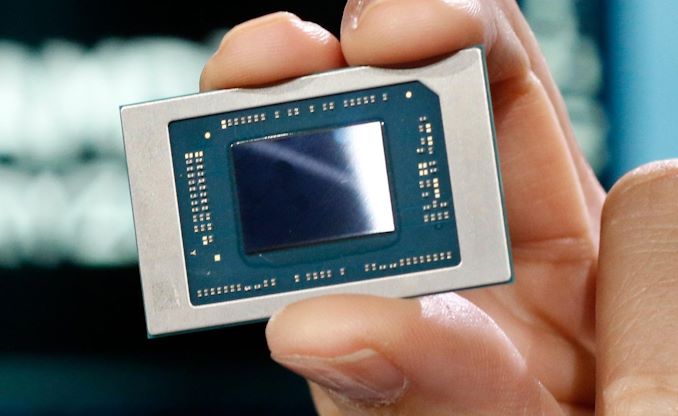AMD: Ryzen Mobile 7040HS “Phoenix” Laptops Delayed Until April
by Ryan Smith on March 17, 2023 4:05 PM EST
For everyone who has been eagerly waiting for the first laptops incorporating AMD’s monolithic Zen 4 mobile CPU, AMD sends word on a Friday afternoon that you’ll be waiting a little longer. Laptops based on AMD’s Ryzen Mobile 7040HS series CPUs have officially been delayed by a month, pushing their expected availability from March to April.
First detailed during AMD’s CES 2023 keynote, the Ryzen Mobile 7040HS series (codename Phoenix) is AMD’s first mobile-focused, monolithic die CPUs based on the Zen 4 architecture, and will be their flagship silicon for mobile devices for 2023. Besides incorporating AMD’s latest CPU architecture, Phoenix also adds into the mix an updated RDNA3 architecture iGPU, and for the first time in any AMD CPU, a dedicated AI processing block, which AMD has aptly named the Ryzen AI. All of which, in turn, is fabbed using TSMC’s 4nm process – making it the single most advanced piece of silicon out of AMD yet.
At the time of its announcement, laptops based on Phoenix were expected in March of this year (i.e. this month). However AMD has sent over a brief announcement on a sleepy Friday afternoon stating that devices based on the new chips have been pushed back a month, to April, citing “platform readiness.” AMD’s complete announcement is below:
To align with platform readiness and ensure the best possible user experience, we now expect our OEM partners to launch the first notebooks powered by Ryzen 7040HS Series processors in April.
Source: AMD PR











57 Comments
View All Comments
lmcd - Friday, March 17, 2023 - link
Demonstrating once again that Intel's primary problem is its inability to launch simple chiplets, and not all that much anymore with its manufacturing (yes it is a bit behind, but it might not even make the top 10 problems that Intel is facing anymore).bubblyboo - Friday, March 17, 2023 - link
???What does that have anything to do with this article on a monolithic AMD processor? And Intel's primary problem is its process, and 90% of its issues stem from that.
Jorgp2 - Friday, March 17, 2023 - link
It makes even less sense when you consider Intel made chiplet CPUs before AMD.Samus - Sunday, March 19, 2023 - link
The Pentium Pro (from 1995) had an on-package cache chiplet - TWO DECADES before AMD.mode_13h - Sunday, March 19, 2023 - link
Yeah, but not long before that, L2 cache was chip-based and plugged into sockets on the motherboard. So, moving it in-package was actually a step towards integration rather than disaggregation.Multi-chip modules have also been done in mainframes, for a long time.
lmcd - Friday, March 17, 2023 - link
Intel's monolithic designs have been mostly on time recently despite being huge, and their chiplets have been late. AMD's monolithic designs have universally been late since Zen 1.This article is the latest in the trend of both of their problems trying to do too much at once. Many Intel delay articles feature comments juxtaposing their problems with AMD, and I added my followup with Intel to this one.
ballsystemlord - Friday, March 17, 2023 - link
The biggest delay AMD had was when they introduced Zen+, delaying Zen 2 by one year. Outside of that there CPU division has been pretty much on time AFAIK.Now their GPU division... that's another story beginning with Vega and buggy drivers, which continue through to today (Like their HBM clocking problem), even into their 3rd iteration of RDNA.
lmcd - Thursday, March 23, 2023 - link
None of their desktop CPUs have been monolithic since Zen+mode_13h - Friday, March 24, 2023 - link
Huh? The 5700G would like a word with you.lmcd - Wednesday, March 29, 2023 - link
That thing is literally an overclocked mobile chip. And arrived late!